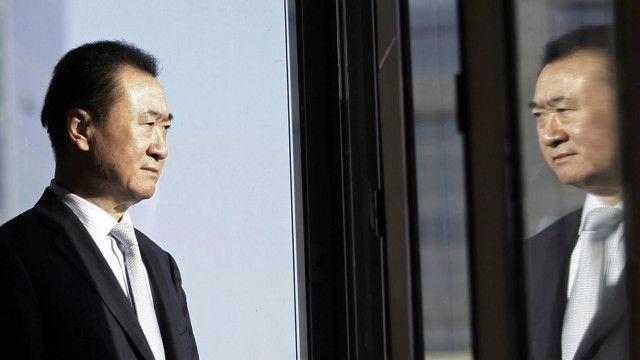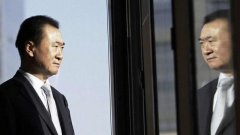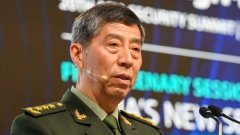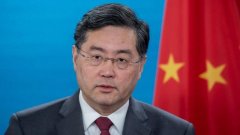New York Times reporter Michael Forsythe published an article reporting on China’s richest man, Wang Jianlin, and exposed the intricate relationship between his business empire and China’s powerful elites. In an interview with BBC Chinese, Fu said that this report began three years ago when he was still at Bloomberg.
A few years ago, New York Times reporter David Barboza's report revealed that the family of former Chinese Prime Minister Wen Jiabao controlled a huge fortune of US$2.7 billion, which put the Chinese authorities in an embarrassing situation that was difficult to defend. Fu Caide discovered some clues during this investigation, which were consistent with some materials collected by David Zhang during his reporting, and found some indirect connections between Wen Jiabao's family and Wanda's shareholdings.
In this report on Wang Jianlin, China’s richest man, the reporter also revealed a large amount of evidence through long-term investigation, revealing the power relationship behind Wang Jianlin’s business interests. Company records show that Wanda Group’s early investors were linked to China’s most senior officials at the time, including former Politburo Standing Committee member Jia Qinglin and National People’s Congress Vice Chairman Wang Zhaoguo.
The global financial crisis in 2008 affected China's real estate market, but Wanda's performance bucked the trend.
The report also pointed out that another new shareholder of Wanda is related to a fund controlled by Hu Haifeng, the son of then President Hu Jintao.
"Jin Yi"'s identity
Jin Yi, another early investor in Wanda, acquired shares in 2009 that are now worth about US$250 million. The New York Times reporter did not find out Jin Yi’s exact identity because the address on her ID card was incomplete. Fu Caide communicated with Zhang David and discovered more identity information about Jin Yi. However, the investigative reporter did not find her name in the official resident records of the community in Liulin, Shanxi Province. However, company records showed that Jin Yi was the former Chinese Prime Minister Wen Jiabao. To the business partner of his daughter Wen Ruchun.
Wen Ruchun is also known as Lily Chang. A reporter's investigation found that Jin Yi and Chang Lili were among the three partners of a real estate company in Beijing. In 2012, Chang Lili appeared in reports when David Zhang was investigating the Wen Jiabao family's control of huge wealth.
After David Chang's report on Wen Jiabao's investigation was published, there were rumors that China had tightened its management of corporate information, making it more difficult than before for journalists who wanted to access company information to investigate corruption to access public information. However, Fu Caide told the BBC Chinese website reporter that this is not actually the case. China often shows a certain contradiction. On the one hand, the authorities are tightening certain controls, but on the other hand, in order to improve the business environment, China is becoming more open and transparent in terms of business information.
News supervision

Joseph Nye commented, "From the perspective of the Chinese Communist Party, Wang Jianlin is a perfect tool." ”
The "New York Times" report also said that Wang Jianlin, who has become the richest man in Asia with a personal asset of more than 35 billion US dollars, is the father of a veteran of the Long March Red Army. Unlike most super rich people, Wang Jianlin also relies on his business influence to promote the Chinese state to the outside world.
This seems consistent with the pattern of a market economy dominated by the Chinese regime: business and power intersect and support each other. The report said that during China's rapid economic growth over the past 30 years, successful businessmen in China needed to cooperate with the ruling party.
As for the imagination of business tycoons collaborating with powerful people, Fu said that this kind of phenomenon existed in the United States in the 19th and 20th centuries. In 1865, an American railroad tycoon gave a large amount of railroad shares to members of the then U.S. Congress. Although they are all corruption, the fundamental difference is that the media in the United States was still free at that time. In 1871, the American media reported on the above-mentioned corruption.
Fu Caide said that although there are many excellent journalists in China, it is a pity that they cannot conduct supervisory reporting. They can only expose the "tiger" with problems, but cannot touch the "big tiger" who is still on the stage.
Another fundamental difference is that the number of corruption in China is very large. For example, Wang Zhaoguo's relatives own up to US$600 million in Wanda stock, while the wealthiest member of the U.S. Congress does not have that much wealth.
National soft power
The "New York Times" report also mentioned Wang Jianlin's interesting contacts with the originator of "soft power", the American scholar Joseph Nye.
Last year at Davos, Switzerland, a gathering of the world's business and power elite, Wang Jianlin was on a panel with Nick Clegg, CEO of Goldman Sachs and deputy prime minister of the United Kingdom. Among the speakers was Harvard University professor Joseph Nye.
Wang Jianlin reportedly said little during the discussion. But when Joseph Nye spoke out about China's diminished influence in Asia as it focused on territorial disputes, the billionaire Wang Jianlin bristled.
Wang Jianlin said sternly, "Today was originally an economic discussion and should not involve politics," and "You are publicly slandering China. This is not polite." ”
Joseph Nye told New York Times reporter Fu Caide that he thought Wang Jianlin's style was very abrupt. Joseph Nye commented, "From the perspective of the Chinese Communist Party, Wang Jianlin is a perfect tool." ”
The New York Times reported that in this sense, Wang Jianlin is more than just a real estate tycoon. In recent years, his interests have entered the fields of overseas investment and culture and entertainment. At this time, the Chinese leadership was also working hard to expand Chinese cultural influence at home and abroad and balance the cultural influence of the West. Therefore, Wang Jianlin, a wealthy businessman, also played an important role in promoting China.
(Editor: Xiaoer)



